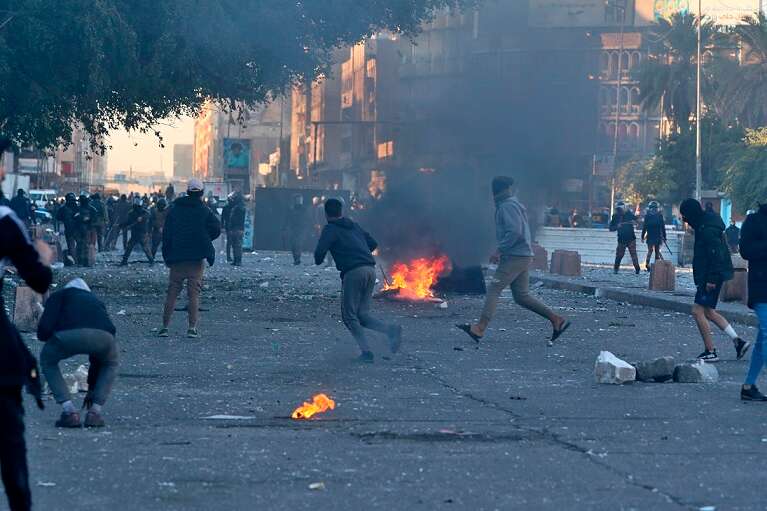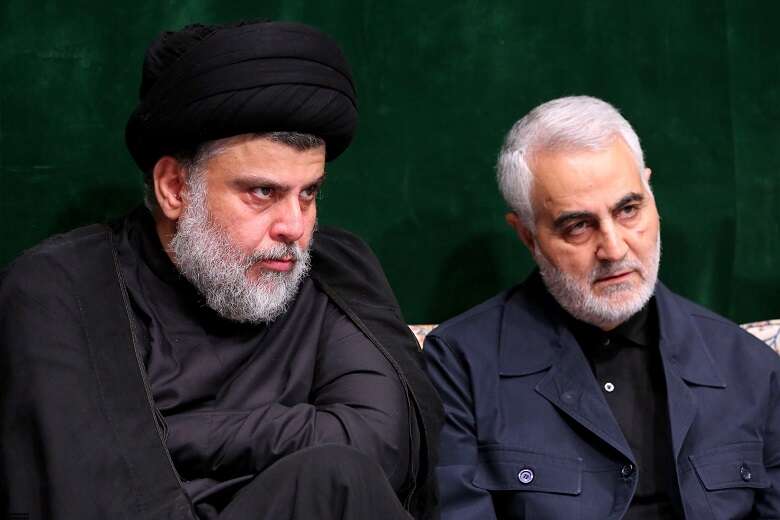At least one of five Katyusha rockets fired at Baghdad's fortified Green Zone hit the US embassy on Sunday, wounding three people, in a rare direct targeting of the compound, security sources said.
Security sources told Reuters that at least one rocket landed inside the US embassy compound and wounded three people. If confirmed, it would be the first time in years that such attacks on the Green Zone, which are regular, have actually hurt staff there.
Follow Israel Hayom on Facebook and Twitter
Iraqi Prime Minister Adel Abdul Mahdi condemned the attack in a statement from his office, and said that the continuation of such acts could "drag Iraq into becoming a battlefield."
Separately, Iraqi security forces shot at anti-government protesters in Baghdad, killing at least one person, and unidentified men set fire to sit-in tents in a southern Iraqi city, police and medics said, as months-long civil unrest escalated.
Anti-government protests erupted in Baghdad on Oct. 1 and quickly turned violent. Security forces and unidentified gunmen have shot protesters dead. Nearly 500 people have been killed in the unrest.
The protests are an unprecedented leaderless challenge to Iraq's Shiite Muslim-dominated and largely Iran-backed ruling elite, which emerged after a US-led invasion toppled Sunni dictator Saddam Hussein in 2003.
In Baghdad, one protester was killed, police sources and medics said, and more than 100 others wounded across the country after the security forces tried to clear protest camps.

At least 75 of those wounded were in the southern city of Nassariya. A Reuters witness said protesters set fire to two security vehicles and hundreds of other demonstrators controlled key bridges in the city. Later, unidentified men set fire to tents that are part of a months-long sit-in in the city center.
Protests have flared in the last two days after populist cleric Muqtada al-Sadr, many of whose supporters had participated, said he would no longer be involved in anti-government demonstrations.
Sadr opposes all foreign interference in Iraq but has aligned himself more closely in recent months with Iran and the Tehran-backed parties that dominate state institutions in Baghdad.
Some demonstrators have accused the populist cleric of treachery to their cause.
Sadr has organized separate anti-American demonstrations aimed at pressuring US troops to leave Iraq, moves that critics say aim to eclipse the anti-establishment movement which has taken aim at all politicians including Sadr.

Sadr had called for demonstrations against the US Embassy in Baghdad and other cities on Sunday but cancelled them, with his office giving "avoiding internal strife" as the reason.
Earlier on Sunday, hundreds of university students had gathered in Tahrir Square, the main protest camp in Baghdad, chanting slogans against the United States and Iran.
Protests also continued in the cities of Kerbala, Najaf and Diwaniya, defying attempts by security forces to end their months-long sit-in, police sources and Reuters witnesses said.




